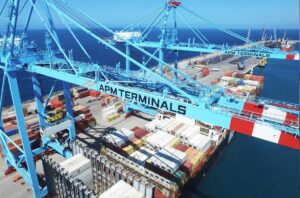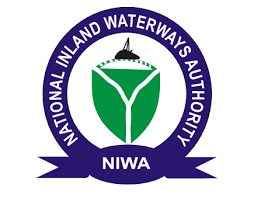Maritime Security will determine Nigeria’s Blue Economy development – Jamoh
The Director General of Nigerian Maritime Administration and Safety Agency (NIMASA), Dr. Bashir Jamoh OFR, has itemized maritime security as a catalyst for the growth of the nation’s blue economy.
Jamoh stated this while speaking on Monday at the opening ceremony of a 5-day training for journalists on maritime security reporting organised by the Kofi Annan International Peacekeeping Training Centre (KAIPTC) in collaboration with Denmark’s Ministry of Foreign Affairs and NIMASA.
According to the NIMASA boss, although the President Bola Ahmed Tinubu administration has yielded to the cries of industry stakeholders with the creation of a specific Ministry of Marine and Blue Economy, the sector wouldn’t thrive without security.
The NIMASA Director General also stressed that the media has a strategic role to play in its reportage and framing of the nation’s maritime sector as Nigeria plans to harness the over 350 million jobs opportunities in the blue economy globally.
“NIMASA and the Nigerian Navy have done a lot to change the narrative of security in the nation’s maritime domain and across the Gulf of Guinea. We are at a stage where our efforts are geared towards maintaining the peace in the region. We should be able to tell our success stories as journalists,” Dr. Jamoh said.
While stating that the training will enable journalists to understand some technicalities of maritime security, he also advised media practitioners to be conscious of the impact of negative reports on maritime trade in the GoG region.
Also speaking, the Director, Faculty of Academic Affairs and Research, KAIPTC, Prof. Kwesi Aning stated that the training course on Maritime Security Reporting is the third of the series of courses on Maritime Security Reporting in the Gulf of Guinea.
His words: “The first and second courses were successfully piloted in Takoradi (for Ghanaian nationals only) and then at the KAIPTC (for a multinational audience) in May and October of this year. This course also forms part of the capacity-building outputs of the ‘Integrated Responses to Threats to Maritime Safety and Security in the GoG Domain’ a five-year project generously supported by the Government of Denmark.”
Aning stressed that the goal of the project is to establish a collaborative platform among stakeholders in the Gulf of Guinea maritime sector, enhance comprehension of the dynamic maritime security landscape, promote better coordination and cooperation, and leverage both individual and collective efforts to improve maritime security in the GoG.




